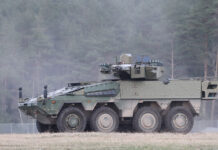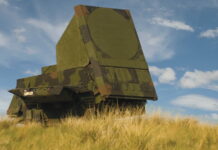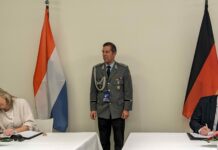Sunday 26 September 2021 was the day when Germans were asked to elect a new parliament – and with it a new – male or female – chancellor. For many Germans, the most drastic change brought about by these elections is the fact that Angela Merkel will no longer be Chancellor in the next legislative period. She is ending her impressive career at the age of 67, although she will continue to be a member of the Bundestag as an ordinary MP.
This change in personnel also marked the election campaign. More than ever before, the campaign has been characterised by a focus on the three candidates for chancellor – Annalena Baerbock of the Greens, Armin Laschet of the CDU and Olaf Scholz of the SPD (in alphabetical order, for heaven’s sake…). The people – not the political programmes of their respective parties – were at the forefront of public discussion, and weeks before the election it was already apparent that there would be a change in the composition of the Government.
Previously, Germany had been governed for three legislative periods – twelve years – by a so-called grand coalition of CDU/CSU (centre/right, the CSU is the sister party of the CDU and only active in the state of Bavaria) and SPD (centre/left). However, both major parties had already announced before the election that a continuation of the grand coalition was out of the question for them.
With almost 26 per cent, the SPD emerged as the strongest party in the elections, which – as this issue is going to press – is expected to join the Greens (14.3 per cent) in coalition talks with the FDP (Free Democrats, 11.5 per cent) or the Left Party (5 per cent) to form a government under Chancellor Olaf Scholz. Scholz is the only one of the three candidates who also held a ministerial post as finance minister in the previous Government.
Even though the CDU/CSU lost 8.5 per cent of the vote compared to the 2017 federal elections, a coalition government with the participation of the CDU (24.5 per cent), the Greens and the FDP would also be possible, although less likely due to the stronger orientation of the Greens towards the SPD’s programme shown in the run-up to the elections. What impact will the election have on the security and defence policy of the Federal Republic of Germany?
“For us it is clear that we can only fulfil our tasks as a reliable partner in Europe and NATO with a well-equipped and modern Bundeswehr,” the SPD`s election manifesto reads. There will certainly be no major changes, but it is well known that the SPD is critical of the use of armed drones – a demand of the military – even before it became known that numerous civilians, including children, were killed by a US military drone in Afghanistan in late August. The SPD supports the use of unarmed drones and advocates an international set of rules to counter the uncontrolled spread of these weapons systems.
In terms of foreign policy, the SPD is committed to a world without nuclear weapons. Against this background, Germany’s so-called “nuclear sharing” is also put up for discussion, but not strictly rejected. “Before a decision is made on a successor to the TORNADO fighter aircraft, we advocate a conscientious, objective and careful discussion of technical nuclear sharing,” the election manifesto states.
According to an assessment by the German think tank SWP, the new German Government will have to become much more involved in the crisis areas in the Middle East in order to counteract uncontrollable refugee movements. Against this background, an intensification of diplomatic relations with Iran is also expected.
Essential demands of the Left Party, regardless of whether it will be part of the new Government or not, will almost certainly not be met: the dissolution of NATO in favour of a new security alliance including the Russian Federation and the total renunciation of foreign deployments of the Bundeswehr, even if the latter certainly require a renewed, critical analysis after the debacle of the Afghanistan debacle. This is also in view of the fact that Afghanistan has once again shown that the German armed forces and those of other nations are not capable of acting autonomously in such missions, but are dependent on US support. Nevertheless, Germany will remain a reliable partner in the international alliance structures and will continue to pursue a moderate foreign and security policy.












